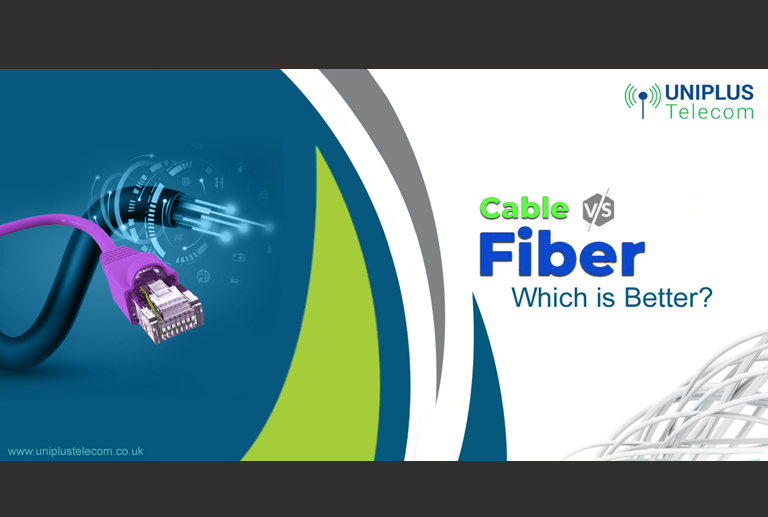In this age of commerce, we demand more with less. And internet being the core junction of all business tasks, entrepreneurs tend to choose the ones that are convenient in everything.
Moreover, this competent ambience waits for nothing less. A high-speed and reliable connection, today, is a basic necessity. The ever-changing attitude of every work environment increases the service expectations accelerate exponentially.
Therefore, choosing a reliable option to receive internet services is key.
Most users have their minds toggle between two alternatives to a robust internet connection. One being the Fiber Optics internet while another is the Broadband Internet services. Now, it, principally, depends upon the requirements of your business. Only then can you choose that which suits your demands precisely.
A clear comparison between the two options would clarify you of the features that fit your organizational needs. So, head on!
The Difference between Broadband Internet Services and Fiber Optics Internet
On the basis of the following points, we have portrayed the areas which each of the two perform in.
Enhanced Internet Service Reliability
Both Broadband as well as Fiber Optics establish themselves as the most reliable connections that are ready for consumption in today’s businesses. Although Broadband stands as the most reliable one, the service tends to interrupt due to location hindrances.
Fiber Optics, on the other hand, is essentially a passive arrangement. This indicates that their service interruptions are extremely less when compared.
Bandwidth Considerations
At times of crises or other important moments, the bandwidth of the internet connection can contribute largely to the business operations. Tasks as video streaming, web conferences, online presentations, file sharing, etc. become challenging when downloads as well as upload speeds are down.
Broadband, for instance, DSL is shared throughout different customers. And due to this, despite sufficing the demands most times, the internet connection can be compromised at times of heavy usage.
On the other hand, the Fiber Optics Internet providers function as a wholesome service that the business uses. Also, the data caps are extremely higher so as to be considered as unlimited bandwidth. The fiber optics is the alternative that invite quick downloads and upload speeds.
Cloud Access Requirements
The services which deliver cloud computing platforms tend to be a principle tool for companies throughout the globe. However, regular delays to access data stored in cloud tends to be hindering the workflow. Even more to those who rely on a global workforce or who deal with clients in real time.
Fiber optics, however, delivers robust connection thanks to its unerring strength regardless of the weather conditions as well. Broadband internet services, on the other hand, makes an inconvenient choice when it comes to consistency.
Security Factors
With the futuristic developments the possibility of breaches refines as well. And to negate those the necessitation of some more technological strength becomes the natural. Data loss is frequent in every corner of the world. However, it is the duty of the companies to opt for secure connections.
Fiber Optics internet is, undoubtedly, an immensely secure connection. Its specialty is that it is extremely difficult to hack. And coupled with its high speed, the Fiber Optics becomes unbeatable.
On the other scenario, broadband connections are extremely vulnerable to breaches. The connections have a tendency to fail give up data easily during infringement. Invading a network that uses broadband happens quickly which eventually makes it inconvenient for any purpose. So, fiber optics wins this tussle.
Broadband pricing vs Fiber Internet
If pricing is your concern, broadband is comparatively affordable with high internet speed. The fiber optics internet services tend to be expensive as prior equipment is necessary for its installation. However, once installed, uninterrupted internet is what businesses experience.
The discussion shows the dominance of Fiber optics internet over the broadband alternative. The traditional attitude to deploy internet discards the use of the later. Therefore, today’s organizations always rely on a convenient option rather than incline on an affordable one and encounter further issues in the long run.



